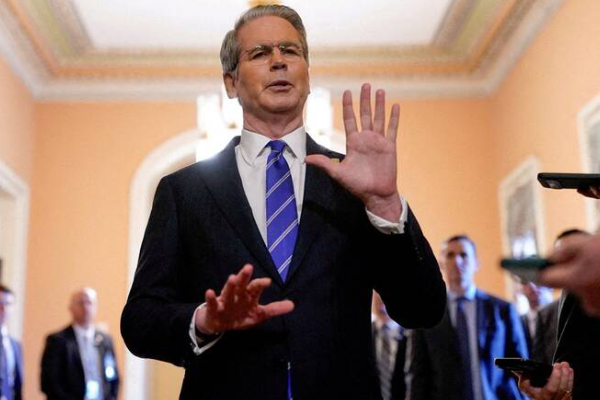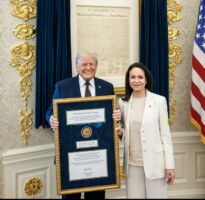Scott Bessent, the U.S. Treasury Secretary, said Tuesday that he will meet with his Chinese counterpart in Stockholm next week to talk about trade relations and the possibility of extending the deadline for higher tariffs, which is in effect until August 12.
Mr Bessent expressed optimism in advance of the bilateral meetings scheduled for Monday and Tuesday by stating that trade ties between the United States and China had entered a very favorable position in an interview.
The U.S. Treasury Secretary pointed out that this round of negotiations would handle more general economic issues, whereas earlier discussions mainly addressed crucial areas like U.S. semiconductor innovations and Chinese rare earth exports.

China’s reliance on manufacturing and exports, as well as promoting the growth of an economy that is more driven by consumption, will be important subjects.
“Hopefully we can see the Chinese pull back on some of this glut of manufacturing and focus more on building a consumer economy,” he said.
Read Also
He also signalled a tougher stance on China’s geopolitical alignments. He plans to confront Beijing over its continued purchases of sanctioned Russian and Iranian oil, and its alleged support for Russia’s war efforts in Ukraine.
The Treasury Secretary revealed that bipartisan momentum is building in the U.S. Senate for legislation that would impose 100% tariffs on imports from nations continuing to purchase Russian oil—specifically citing China and India.
In addition to China talks, Bessent hinted at a series of imminent trade agreements between the U.S. and other countries, including Japan, despite that country’s recent political turbulence.
The existing tariffs, which are at 10%, could return to their April 2 levels for the majority of trade partners, he warned, contingent on the results of ongoing negotiations.
Amidst growing geopolitical tensions, Washington seeks to strengthen alliances, limit adversary influence, and rebalance supply networks, making the Stockholm meeting a pivotal point in the changing global trade landscape.





